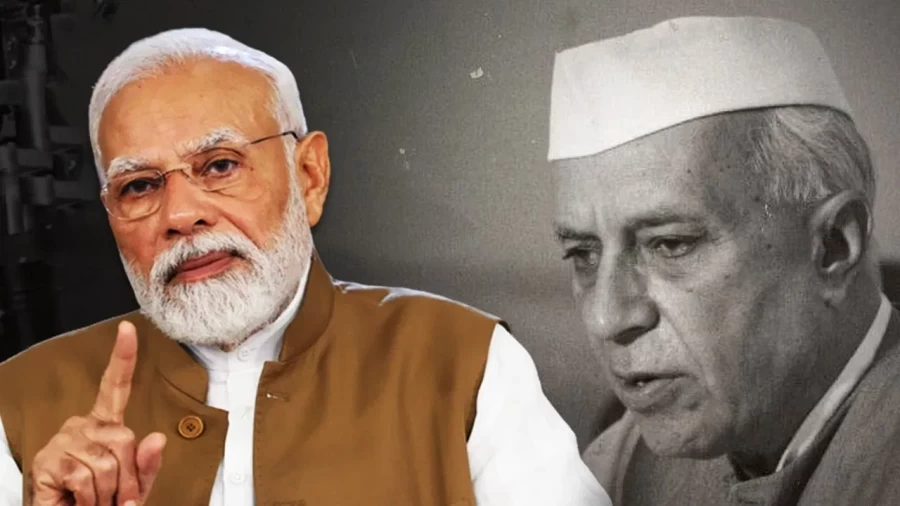Reservation: 'I don't like any reservation. Absolutely no reservation in jobs. I am against any step which promotes inefficiency and leads to second-rate standards...', these are the lines that former Prime Minister Pandit Nehru had written in a letter to the Chief Ministers of the country. On Wednesday, PM Modi read that letter in the Rajya Sabha. PM said, Pandit Nehru used to say that if SC, ST and OBC get reservation in jobs, the level of government work will fall.
PM Modi said that this is why I say that he is against birth reservation. Congress never gave full reservation to OBCs. If we turn the pages of history, we will find that Congress had many opportunities to provide reservation to the OBC category, but the party lagged behind in this. Other parties understood the needs of the OBC category. Many veteran leaders in politics emerged as OBC leaders. A committee was formed to give reservation to OBCs, but the process of giving reservation did not get the pace it should have.
How was the Kala Kalelkar Commission formed?
When the demand for reservation started in the country, in 1953, the then Prime Minister Pandit Jawahar Lal Nehru constituted the Kala Kalelkar Commission for the backward classes. Which came to be known as the First Backward Classes Commission. The commission submitted its report two years later in 1955. The matter did not move forward based on the report. There were many flaws in the commission's report. In it, only Hindus were mentioned while ignoring other religions. After the flaws were revealed, the matter was shelved.
In the next several years, freedom fighter and socialist leader Ram Manohar Lohia started getting support from the OBC class. After his death in 1967, Jat leader Chaudhary Charan Singh from Western UP emerged as a veteran OBC leader.
When was the Mandal Commission established?
According to the report, in October 1975, Congress leader and the then Chief Minister of Uttar Pradesh Hemwati Nandan Bahuguna made a big announcement considering OBC reservation. He talked about giving 15 percent reservation to the OBC category in government jobs. This was a big step from the Congress side. Within a week, the Janata Party government led by Morarji Desai showed the way out to the ND Tiwari government. Later, Janata Party leader and then Chief Minister Ram Naresh Yadav (1977-79) implemented reservation in Uttar Pradesh and also took credit for it.
In the year 1990, Congress faced another blow, when the then Prime Minister VP Singh made a big announcement and talked about implementing the Mandal Commission report. This commission was established as Socially and Educationally Backward Classes Commission (SEBC) on 1 January 1979 by the then Prime Minister Morarji Desai.
The interesting thing is that the report submitted by this commission also remained gathering dust for 14 years. During this period Congress was in power, but no decision was taken on this. Gradually the parties started understanding the power of OBCs and statements regarding reservation started coming. Many leaders emerged as OBC leaders.
In 2006, Arjun Singh, Union Human Resource Development Minister in the UPA-1 government, talked about giving 27% reservation to the OBC category in admissions in central educational institutions. This recommendation of the Mandal report was pending for a long time.
In the year 2008, the Supreme Court intervened in this matter so that the benefits of reservation reach the deprived people also. The Center implemented a new system to exclude the creamy layer among OBCs from the benefits of the reservation policy. In the year 2018, the National Backward Classes Commission was given constitutional status by making the 102nd amendment of the Indian Constitution. This decision proved to be a milestone for the backward classes. The Commission is functioning as a statutory body under the Ministry of Social Justice and Empowerment.


